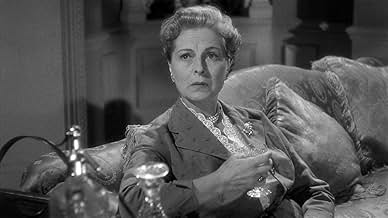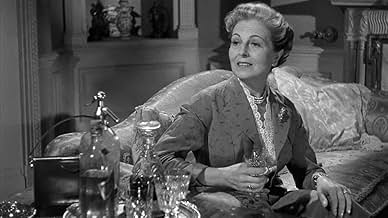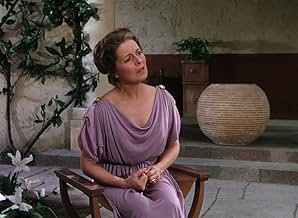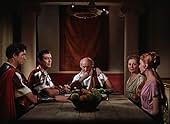Nora Swinburne(1902-2000)
- Actress
Known for her genteel ways and stately beauty in tea service drama,
British actress Nora Swinburne was born Elinore Johnson on July 24,
1902, in Bath, England. Performing on stage as both actress and dancer
from the age of 10, her father, Henry Swinburne Johnson, manufactured
toys for a living.
She was a member of Clive Currie's Young Players in 1914 and appeared in shows during that year. Educated at Rosholme College, she trained for the arts at the Royal Academy of Dramatic Art. Building up her stage reputation with such pieces as "Suzette" (1917), "Yes, Uncle!" (1918), "Scandal" (1919), and the title role in "Tilly of Bloomsbury" (1921), her attractiveness proved quite suitable for films, entering silent pictures in 1920. She appeared in a handful of sophisticated fare throughout the early part of the decade such as Branded (1920), The Fortune of Christina McNab (1921), Hornet's Nest (1923), and A Girl of London (1925).
Divorced from actor Francis Lister, she was married to actor Edward Ashley at the time she met Esmond Knight while appearing in the play "Wise Tomorrow" in 1937. Actually, both actors were married at the time, but they engaged in a long, discreet affair until both were free. They finally married in the late 1940s and enjoyed a long union together. They would appear in several plays over the years from "Autumn Crocus" (1939) to "The Cocktail Party" (1974). Ms. Swinburne enjoyed great theatrical success playing the role of Dinah Lot in the play "Lot's Wife" (1938), which she subsequently reproduced under her own management, and later replaced Diana Wynyard in the memorable war drama "Watch on the Rhine" in 1943.
By the advent of sound, Ms. Swinburne had been related to opulent supports in films, usually appearing as ladylike mothers or socialite types in plush Gainsborough dramas. Some of her later films would include Perfect Understanding (1933), The Citadel (1938), The Man in Grey (1943), Man of Evil (1944), Jassy (1947), Christopher Columbus (1949), Quartet (1948), The River (1951) (with husband Knight), Quo Vadis (1951) (as Pomponia), Helen of Troy (1956) (as Hecuba), Decision at Midnight (1965) (again with Knight), Interlude (1968) and Anne of the Thousand Days (1969).
An avid gardener by nature, Ms. Swinburne would die of old age in 2000, thirteen years after husband Knight.
She was a member of Clive Currie's Young Players in 1914 and appeared in shows during that year. Educated at Rosholme College, she trained for the arts at the Royal Academy of Dramatic Art. Building up her stage reputation with such pieces as "Suzette" (1917), "Yes, Uncle!" (1918), "Scandal" (1919), and the title role in "Tilly of Bloomsbury" (1921), her attractiveness proved quite suitable for films, entering silent pictures in 1920. She appeared in a handful of sophisticated fare throughout the early part of the decade such as Branded (1920), The Fortune of Christina McNab (1921), Hornet's Nest (1923), and A Girl of London (1925).
Divorced from actor Francis Lister, she was married to actor Edward Ashley at the time she met Esmond Knight while appearing in the play "Wise Tomorrow" in 1937. Actually, both actors were married at the time, but they engaged in a long, discreet affair until both were free. They finally married in the late 1940s and enjoyed a long union together. They would appear in several plays over the years from "Autumn Crocus" (1939) to "The Cocktail Party" (1974). Ms. Swinburne enjoyed great theatrical success playing the role of Dinah Lot in the play "Lot's Wife" (1938), which she subsequently reproduced under her own management, and later replaced Diana Wynyard in the memorable war drama "Watch on the Rhine" in 1943.
By the advent of sound, Ms. Swinburne had been related to opulent supports in films, usually appearing as ladylike mothers or socialite types in plush Gainsborough dramas. Some of her later films would include Perfect Understanding (1933), The Citadel (1938), The Man in Grey (1943), Man of Evil (1944), Jassy (1947), Christopher Columbus (1949), Quartet (1948), The River (1951) (with husband Knight), Quo Vadis (1951) (as Pomponia), Helen of Troy (1956) (as Hecuba), Decision at Midnight (1965) (again with Knight), Interlude (1968) and Anne of the Thousand Days (1969).
An avid gardener by nature, Ms. Swinburne would die of old age in 2000, thirteen years after husband Knight.



























